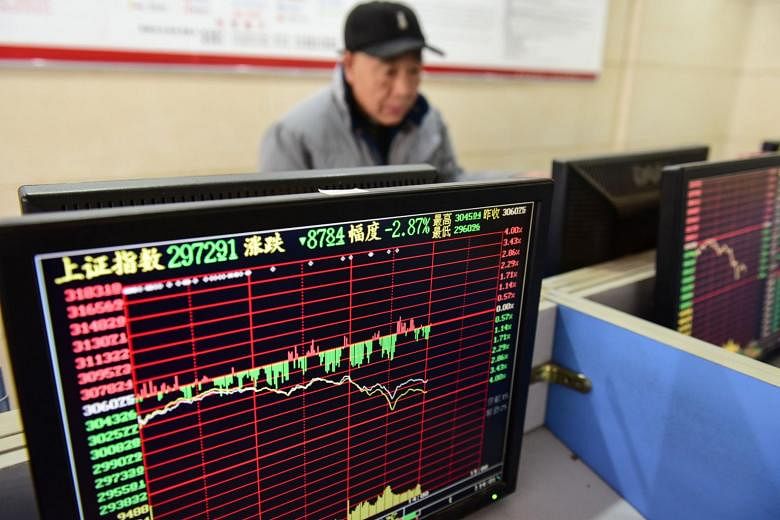TOKYO (REUTERS, BLOOMBERG) - Asian shares held their ground on Friday (Jan 24) as trade slowed for the Lunar New Year, despite investors fears that a new coronavirus in China could spread faster as millions of people would be travelling over the week-long holiday.
Markets had steadied overnight, as investors took some solace from the World Health Organisation labelling the outbreak an emergency for China, where 25 people have died and at least 800 have been infected, but not, as yet, for the rest of the world.
MSCI's broadest index of Asia-Pacific shares outside Japan rose 0.1 per cent, while Japan's Nikkei eased a marginal 0.05 per cent and Australian stocks added 0.3 per cent.
In Singapore, which announced its first confirmed case of the Wuhan virus on Thursday night, the Straits Times Index was trading slightly up 4.17 points or 0.13 per cent to 3,238.73 going into the midday break.
Key indices on Wall Street overnight bounced from lows after the World Health Organisation (WHO) stopped short of calling the virus a global health emergency, saying it remains a local crisis.
Trade in Asia is already slowing down for the Lunar New Year holiday, with financial markets in China, Taiwan and South Korea closed on Friday.
"Investors are worried that the outbreak of coronavirus will dampen consumption in China when the Chinese economy has been already cooling down," said Yasuo Sakuma, chief investment officer at Libra Investments.
Indeed, National Australia Bank's research team tentatively estimated China's GDP growth for the first quarter could be hit by around 1 per cent point by this deadly coronavirus outbreak.
"The impact on Chinese growth could be significant given the outbreak coincides with the Chinese New Year," said Tapas Strickland, NAB's director of economics.
"Measures to isolate the outbreak has meant 26 million people in cities or near urban areas are in lockdown or have limited travel. New Year festivities are also curbed in Beijing and Macau."
"Investors are worried that the outbreak of coronavirus will dampen consumption in China when the Chinese economy has been already cooling down," said Yasuo Sakuma, chief investment officer at Libra Investments.
"The scare should eventually prove to be a buying opportunity, but the market would first need evidence that the situation is stabilizing," wrote Citgroup emerging market strategists in a note Thursday. " In spite of the Chinese authorities being more open and proactive this time, we are probably closer to the beginning than to the end of the outbreak."
In the currency market, the concerns about the virus supported the yen.
The Japanese currency traded at 109.47 per US dollar, having risen to a two-week high of 109.26 yen on Thursday.
The euro fell to a seven-week low versus the dollar of US$1.1036 overnight after the European Central Bank left its policy rates unchanged but President Christine Lagarde struck a slightly dovish tone than some had expected.
The common currency last stood at US$1.1053, down a marginal 0.05 per cent on the day.
The offshore yuan softened to 6.932 per dollar, one day after hitting a 2-1/2 week low of 6.942 yuan.
Coronavirus fears continued to weigh on commodity prices.
Oil prices remained under pressure on growing concern that fuel demand will weaken as the spread of a respiratory virus from China dents travel and darkens the economic outlook.
Brent crude futures shed as much as 0.16 per cent to below US$62 a barrel in early Asian trade on Friday, its lowest since Dec 4, after falling 1.9 per cent the previous session.
US West Texas Intermediate (WTI) futures declined as much as 0.22 per cent to US$55.47 and were on course for a 5 per cent fall for the week.











